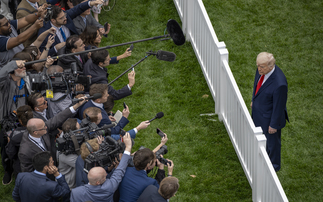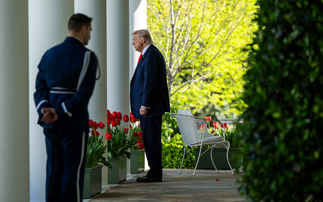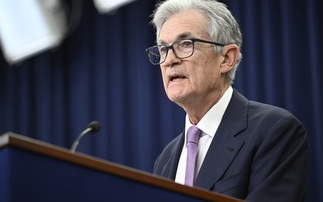In the first of a special three-part Big Question, fund managers give their views on whether President Trump can deliver on his campaign promises, and what this will mean for markets.
Paul Niven, fund manager at BMO Global Asset Management
Reflationary trades room to run
Trump's victory in the election added impetus to a number of prevailing trends which were already evident in global markets. Indeed, reflationary themes were already well entrenched prior to November 2016, with modestly improving economic momentum and rising government bond yields combined with better performance from value, cyclicals and financials.
Over the past year, investors have increasingly priced out secular stagnation and embraced a more constructive environment for the global economy and corporate sector.
Clearly, 'Trump trades', which are reliant on specific policy measures such as defence spending, pharmaceutical pricing policy or protectionist measures, will be subject to the impact of policy detail in due course, and the market will have to contend with Trump's unconventional manner of communicating his intentions in the meantime.
Nonetheless, the direction of travel is clearer than the magnitude of change in a number of areas. Our view is that news flow will remain supportive and that the reflationary trade still has room to run.
Darius McDermott, managing director at Chelsea Financial Services
Cautious outlook
Stockmarkets have already priced in a lot of the expectation that Trump will be good for growth. However, we still do not know the detail of what he intends to do, and it is not a given that all of his policies will get through Congress.
If growth is better than expected, interest rate rises are likely to come faster and higher than expected as well.
If this is the case, and US 10-year treasuries get to 3%, say, why would investors then buy equities yielding 2%? Once the 'risk-free' asset pays more, investors will move back towards it and this could be the catalyst for a sell-off.
For the stockmarket to continue to rise as it is today, company earnings need to keep growing. So I am actually pretty cautious in my outlook.
The US stockmarket is already looking expensive, as is the UK stockmarket. Flows into passive funds are not helping this, as a disproportionate amount of money is going into the larger caps.
If we are nearing a peak, investors could be punished for piling in at the top of the market.
Matthew Tillett, senior portfolio manager - UK equities at Allianz Global Investors
Reality bites
Investors have remarkably short memories. It was not long ago that fiscal retrenchment and austerity combined with ultra-loose monetary policy were seen as the solution to the economic problems inherited from the global financial crisis.
Now we are being led to believe that a Trump-led, debt-funded fiscal expansion is the answer.
The stockmarket is cheering this because, in the short term at least, it may boost economic growth. But there are also potential negative consequences, such as rising interest rates, that would put more pressure on the consumer and corporate sectors.
Furthermore, the structural problems of over-indebtedness and stagnating productivity are unlikely to be solved by fiscal expansion. Being president is as much about dealing with problems as it is about implementing an agenda. Reality is messy and it rarely follows a pre-determined script.
I suspect the agenda of the Trump presidency will quickly become superseded by future events and problems largely unforecastable today.
Investors are being too optimistic because they are disregarding the risks of Trump's agenda and forgetting that much of it may not be implemented, anyway.













